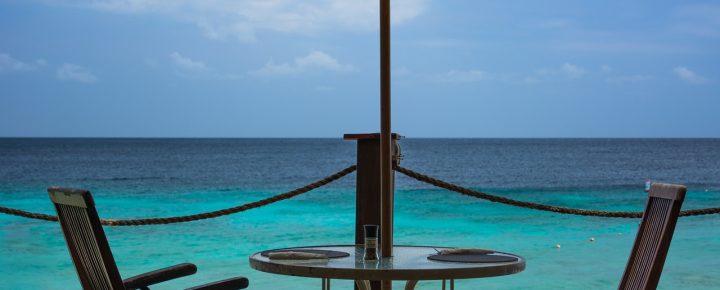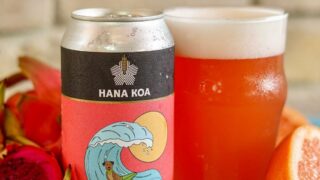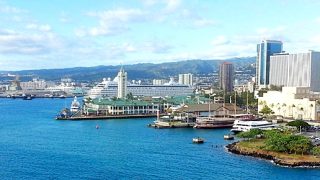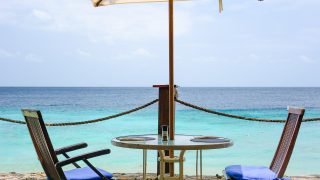The Hawaii Department of Health’s Food Safety Branch issued an alert regarding raw oysters they said may be potentially contaminated with norovirus. Five suspected cases in Hawaii have been reported to the United States Food and Drug Administration (FDA). Each of those people consumed raw oyster shooters at a Hawaii restaurant last month. DOH said that “trace-back information revealed the source for the implicated raw oysters was from a shipment by Dai One Food Co., Ltd., ROK.” DOH sent samples collected that were sent to the FDA for norovirus testing. The FDA confirmed the norovirus findings this week.
The company involved, Dai One Food Co. Ltd., has since voluntarily recalled its “Individual Quick Freezing (IQF) raw oysters, harvested between February 2 and 4, 2022, and April 13 and 14, 2022, that were shipped from the ROK and distributed to restaurants and retailers in Hawaii, Georgia, and Minnesota.”
Your editors, Rob and Jeff, got norovirus at a restaurant last month while on vacation.
We’re here to tell you that it can happen. For us, it was at a highly acclaimed Indian restaurant in London when we were there for the coronation and to look at the relationship between England and Hawaii. It began not long after dining, and we’ll skip all the ugly details. Much of our time was wrecked in London, resulting in a trip insurance claim and multiple doctor visits. We’ve both luckily fully recovered, but it isn’t something you forget very soon.
DOH said that “norovirus can cause sporadic gastroenteritis in populations ranging from children to the elderly.
The infections are more frequent in children under age 5 than in adults. The most common symptoms of norovirus are diarrhea, vomiting, nausea, and stomach pain. Other symptoms include fever, headache, and body aches. Most people infected with norovirus develop symptoms 12 to 48 hours after infection. Symptoms usually last one to four days.” What DOH failed to say is that dehydration is common when symptoms are severe in adults, and the resulting weaknesses can extend far longer. In your editors’ cases, that lasted about ten days.
DOH warned that “consumers, especially those who are or could become pregnant, the elderly, and persons with weakened immune systems, who have recently consumed raw oysters and suspect they have food poisoning, should seek medical care immediately.”
How to avoid norovirus on your Hawaii vacation.
Norovirus is a highly contagious virus. Editor Jeff may have gotten it first and then shared it with Rob, who got it subsequently. That isn’t entirely clear. To avoid norovirus on your Hawaii vacation, here are some things you can do:
1. Good hand hygiene. Wash hands frequently with warm water and soap, especially before eating, following the restroom, and after potentially touching contaminated surfaces. When washing hands isn’t possible, try using alcohol-based hand sanitizers.
2. Avoid contact with others who may have norovirus. Norovirus spreads very quickly between people. Try to keep your distance from those who have gastroenteritis symptoms, including vomiting and diarrhea. Can we say it isn’t always easy in a shared hotel room?
3. Be careful with the food you’re consuming. Fruits and veggies should be washed. Consuming raw or undercooked seafood should always be considered suspect and worth extra caution. In other words, consider where you buy your poke very carefully! Check that food is prepared and stored correctly. When dining out in Hawaii, choose restaurants with approved food safety inspections from DOH.
4. Remain well hydrated in Hawaii, drinking adequate water. Good hydration helps our immune systems. So does enough sleep, a good diet, and reduced stress.
5. Use disinfectant liberally on potentially contaminated surfaces like faucets, light switches, door knobs, etc. Norovirus can remain active on these longer than we’d like to believe.
6. Be cautious in hotel rooms, restrooms, and other shared space environments.
7. Consider trip insurance. That just saved us thousands, which is another story. It can help with trip interruption or cancellation, among other things.
Get Breaking Hawaii Travel News







Wash Your Hands! My name is Sandi and I am a germ phobe. I get taunted on this daily, but I Have Never Been Sick Since 1999. Also, I wash and clean everything appropriately. I am never too lazy or tired to rinse anything off. I observe like mad where I am eating, the hostess, the floors, the bathrooms. If anything looks mis managed or unclean, I do not order anything that will be touched too much or I just leave. Dont even get me started on some food trucks. They may appear clean and get rave reviews, but when I see a food truck parked at a residence that looks like squaller. I mark it off my list. If people are not clean at home, they will not be clean preparing your food, period. Most people do not care. I Know!
Hi Sandi.
Thank you for your handwashing tip. And for six dozen other comments!
Aloha.
Like long Covid, Norovirus often causes long-term digestive issues such as Colitis and Irritable Bowel Syndrome in many victims. Since it spreads through the fecal-oral route, handwashing is the best defense.
Hi Rob.
Perhaps we should feel grateful to have gotten over all of it, including the residual weakness, in 10 days or so. Thanks for so many comments over the past three years.
Aloha.
Hey, I got sick at a London Indian food place too. It had awards listed in the window. Not only was the food expensive and nothing special, but I regretted eating there for days afterward. Now I never go to any Indian food restaurants in London – whether I’m in Islington or not. Just not worth taking a chance. I missed too many activities. Maybe I should have realized my mistake when I saw that the restaurant wasn’t overflowing with customers. If it was really so good, it should have been far more popular.
Hi Tony.
Funny coincidence, or not. Hope you’re fully recovered!
Aloha.
I’m planning a trip to London. Who did you get travel insurance with? Aloha and mahalo.
Hi Carol.
Thanks for asking. Insuremytrip.com.
Aloha.